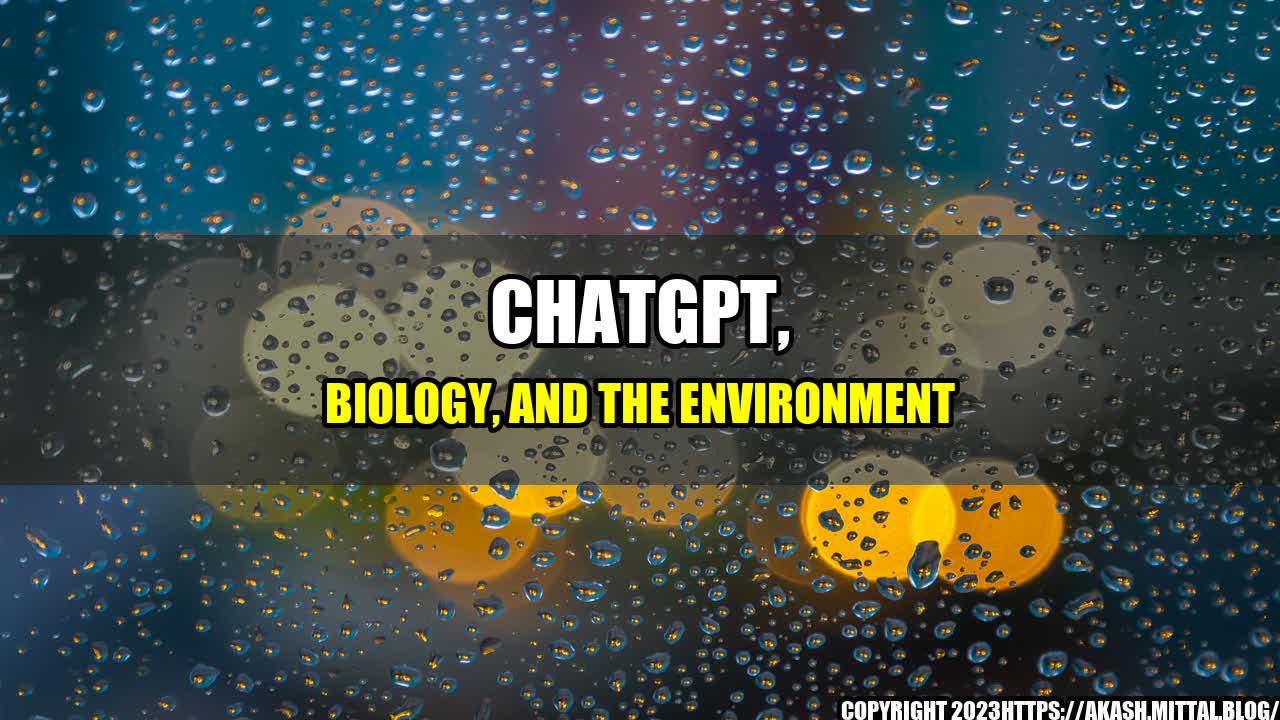Have you ever heard of ChatGPT? Maybe you have, maybe you haven't. Either way, it's an incredibly innovative technology that has been making waves in the world of biology and the environment.
What is ChatGPT?
ChatGPT is an AI-powered chatbot that uses natural language processing to answer questions and provide information on a wide variety of topics. It's designed to be intuitive and user-friendly, making it accessible to anyone, regardless of their background or expertise.
How does ChatGPT benefit biology?
One of the most significant ways that ChatGPT benefits biology is by providing quick and easy access to information. For example, a biologist working in the field can use ChatGPT to ask a question about a specific plant or animal they come across, and get an answer in real-time. It saves them the time and effort of having to look up the information themselves, allowing them to focus on their work.
Another benefit is the potential for collaboration. Since ChatGPT is accessible to anyone, it allows biologists from around the world to connect and share their knowledge and ideas. This can lead to new discoveries and innovations in the field, and ultimately help us better understand and protect the natural world.
And the environment?
ChatGPT's impact on the environment is similarly significant. One of its most significant benefits is making environmental information more accessible to the general public. For example, someone planning a new construction project can use ChatGPT to quickly find out if it would have an adverse impact on the environment. This can help prevent unnecessary damage to ecosystems and habitats, ultimately protecting and preserving the natural world.
ChatGPT can also help us better understand climate change and its impacts. It can quickly compile data from multiple sources and present it in a digestible, easy-to-understand format. This can help policymakers and the public make more informed decisions, ultimately leading to better environmental outcomes.
Conclusion
Overall, ChatGPT is a powerful tool for both biologists and environmentalists. It makes information more accessible, encourages collaboration and innovation, and can help us better understand and protect the natural world.
- Easy access to information for field biologists
- Potential for collaboration and new discoveries
- Helps prevent environmental damage and better understand climate change
References
- https://www.chatgpt.com/
- https://www.scientificamerican.com/article/how-chatbots-are-helping-to-transform-the-way-we-conduct-science/
- https://www.nps.gov/subjects/digital/chatbot.htm

Curated by Team Akash.Mittal.Blog
Share on Twitter Share on LinkedIn